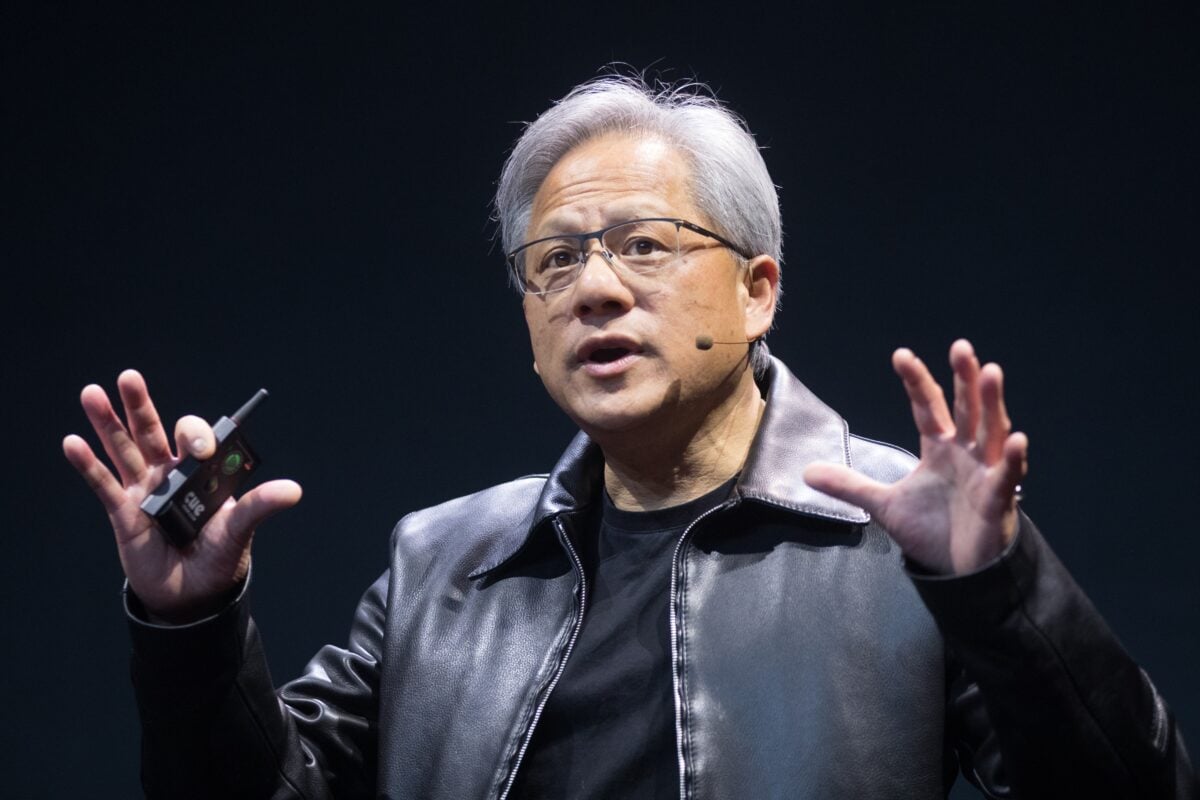TLDRs;
Contents
- Nvidia’s H20 chips cleared by China after regulators found no hidden backdoors or national security risks.
- Revenue-sharing deal with U.S. government allows Nvidia to continue Chinese sales while offsetting security concerns.
- Tiered export chip models like the H20 and upcoming B30A replace outright bans, ensuring continued market access.
- CUDA software ecosystem lock-in helps Nvidia maintain Chinese developer reliance despite domestic competition from Huawei.
Nvidia’s chief executive officer, Jensen Huang, has moved to calm tensions over the company’s AI chip sales in China, stating that its H20 processors carry no national security risks.
Speaking in Taipei, Huang emphasized that the H20, a lower-powered version of Nvidia’s flagship chips tailored for the Chinese market, contains no backdoors or hidden functionalities that could be exploited for surveillance or cyberattacks.
His remarks followed reports that Chinese regulators had summoned Nvidia representatives to question the chipmaker about potential security vulnerabilities in its products. According to Huang, Nvidia has already provided a full technical explanation of the H20’s security specifications to Chinese officials, easing concerns about its deployment across data centers and AI projects.
The reassurances come against the backdrop of intense U.S.–China trade restrictions that continue to reshape the global semiconductor industry.
Revenue-sharing reshapes export control framework
While the H20 clearance may ease short-term frictions in China, Nvidia’s broader business remains tightly bound by Washington’s export rules. In a novel arrangement, the company has agreed to share 15% of its revenue from Chinese chip sales with the U.S. government.
This revenue-sharing model represents a fundamental shift in how Washington approaches technology trade with China. Rather than blanket bans, the U.S. has begun exploring structured financial partnerships where American firms pay for the right to access restricted markets.
The system addresses the economic realities of global chip demand. China accounts for over 36% of semiconductor consumption worldwide, and Nvidia generated nearly 13% of its annual revenue from Chinese customers last year. When earlier restrictions were enforced in October 2022, Nvidia reported a $5.5 billion hit to its business, underscoring the cost of outright exclusion.
Tiered chips replace blanket bans
Nvidia’s H20 is itself a product of adaptation. Following restrictions on its high-performance A100 and H100 chips, the company engineered export-compliant versions that deliver limited processing power while maintaining market presence.
This tiered approach is increasingly becoming the template for navigating geopolitical restrictions. Nvidia is already developing a successor chip, the B30A, based on its Blackwell architecture. According to industry sources, the B30A will deliver roughly 50% of the power of Nvidia’s flagship B300 dual-die accelerator, using a single-die design for cost efficiency and regulatory compliance.
Samples could be sent to Chinese partners as early as next month, though U.S. regulatory approval remains uncertain.
Ecosystem lock-in bolsters Nvidia’s strategy
Beyond chip hardware, Nvidia’s enduring strength in China rests on its CUDA software ecosystem, which is deeply embedded across AI development pipelines. Despite government mandates requiring Chinese state-funded data centers to source at least 50% of their chips domestically, switching from CUDA to Huawei’s competing CANN platform has proven challenging.
Migrating existing AI models to a new ecosystem involves not just hardware replacement but retraining staff, rewriting applications, and accepting potential performance compromises. This entrenched dependency has given Nvidia breathing room to maintain relevance in China, even under restrictions.
As Chinese rivals like Huawei scale up efforts with chips such as the Ascend 910C, Nvidia’s strategy of offering scaled-down but CUDA-compatible processors ensures developers remain tethered to its platform.


